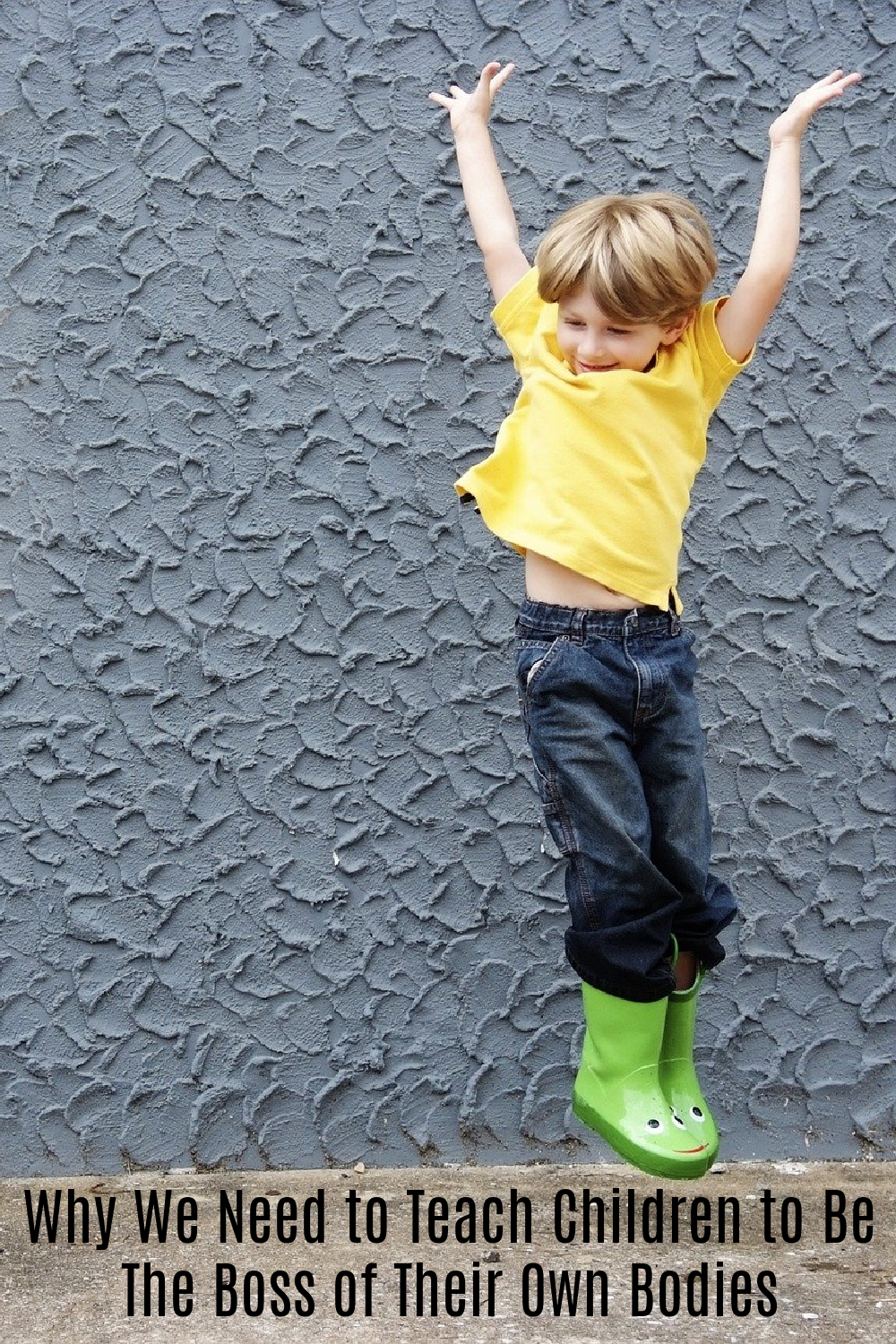I don't make my kids hug or kiss anyone they don't want to. I was never forced to as a child because different experiences that my mother had growing up. I was always thankful that my mom never made me because I would go through phases of being shy.
Quite a few years ago now, my husband's family had a Christmas party and my husband's Aunt told my daughter to come give her a hug. My daughter looked at me timid and I told her she didn't have to do anything she didn't want to. So she didn't hug her and just said, "Merry Christmas". Later, my mother-in-law confronted me about how she thought this was rude and "It was just Aunt [name redacted]". This was an uncomfortable conversation since I don't like confrontation, but it needed to be said. It wasn't about undermining or embarrassing anyone, but educating. I told her that I would never force my children to be hugged or kissed by anyone even if that person is their Great Aunt because it's their body. I also mentioned how they don't know her very well because they don't remember seeing her at all. I don't know what changed my mother-in-law's mind for sure, but she no longer expects the grandkids to hug anyone that they don't want to.
The reason I have this rule is simply, I don't want my kids to be groomed for sexual abuse.
My mom is a childhood sexual abuse survivor and she knew her abuser very well. I think growing up under different circumstances can make people think differently. We have to understand that not all people have the same experiences that we do so sometimes we have to gently educate them sometimes. But you are your child's strongest advocate. We have to encourage the children that we care for that no means no. We have to teach them that it's never their fault if someone touches them in a way that makes them feel unsafe. We have to encourage our kids from an early age that their voices matter. We have to respect them when they say no.
Helping Kids Understand Consent:
Not Helpful:
- "Give Nana a Kiss"
- Tickling after they say stop
- Telling them to keep secrets (even silly ones)
- Making silly names for private parts
Helpful:
- "Would you like to give Nana a hug?" respecting if their answer is no.
- Narrating out loud: "You said stop! I hear you are done with tickling."
- "We don't keep secrets in our family. If anyone tells you to keep a secret, you let us know."
- Use anatomically correct names for body parts. Penis, vagina, vulva, breasts, nipples are not bad words.
Having these conversations with the safe adults around you can be difficult, but they are important to have. Because they are a safe grownup for your child to trust, they want to help you child learn to respect their bodies so find ways to positively have the conversation so we can do better for our children.
Here are some resources to help support your efforts to keep your child safe:




.png)



No comments
Thank you for dropping by! I would love to hear what you thought. :)
Thanks!
♥,
Diana